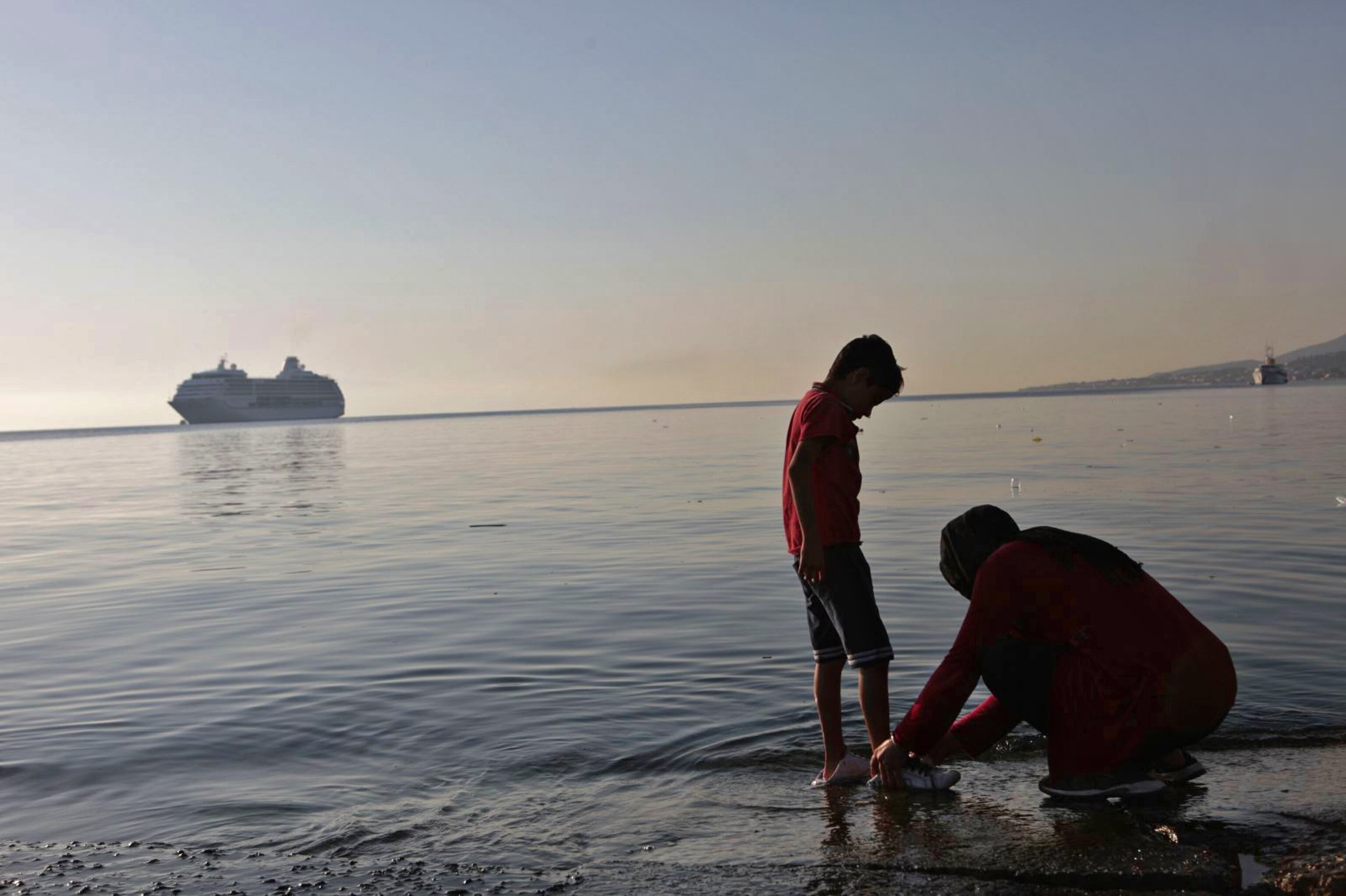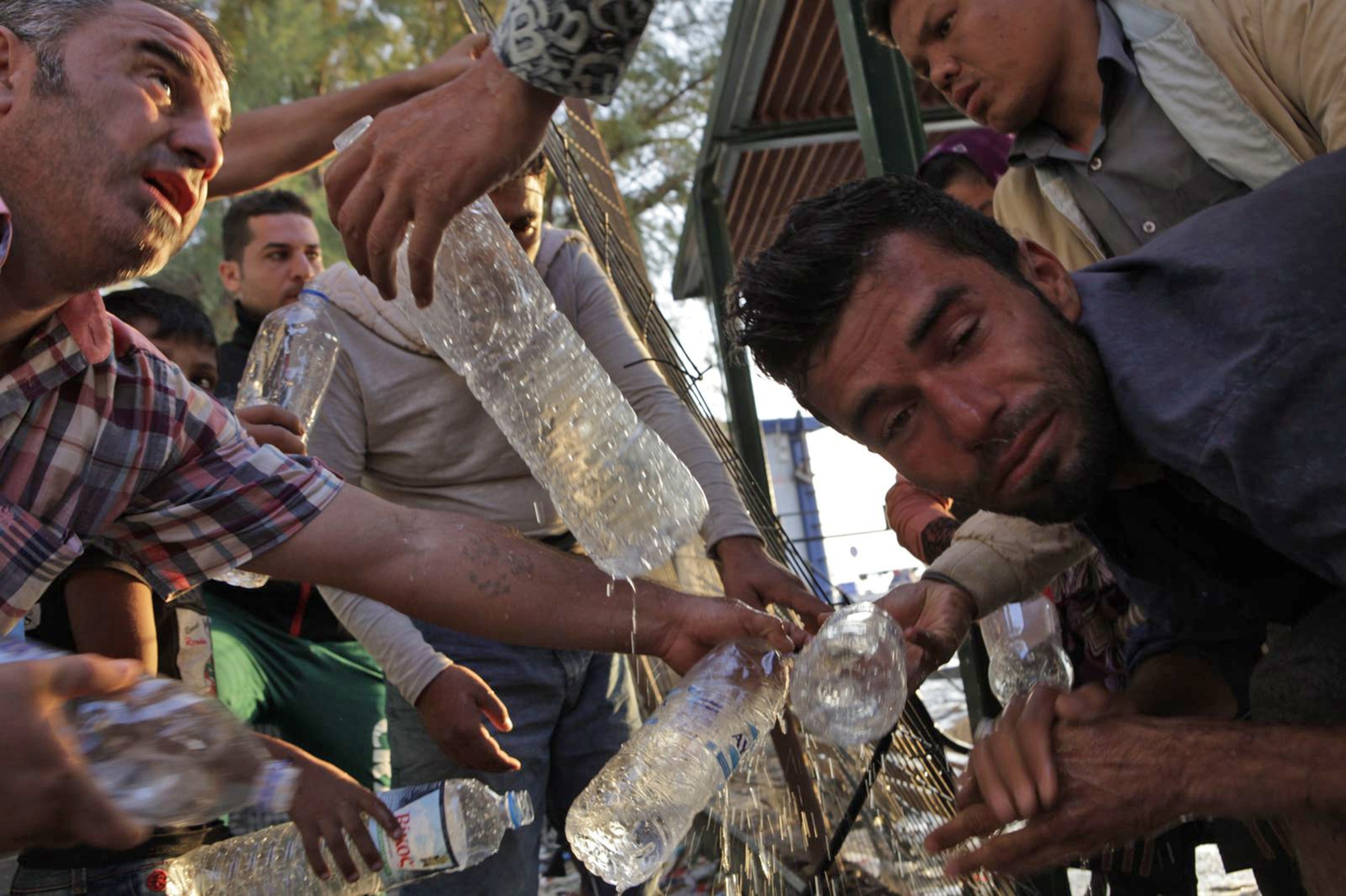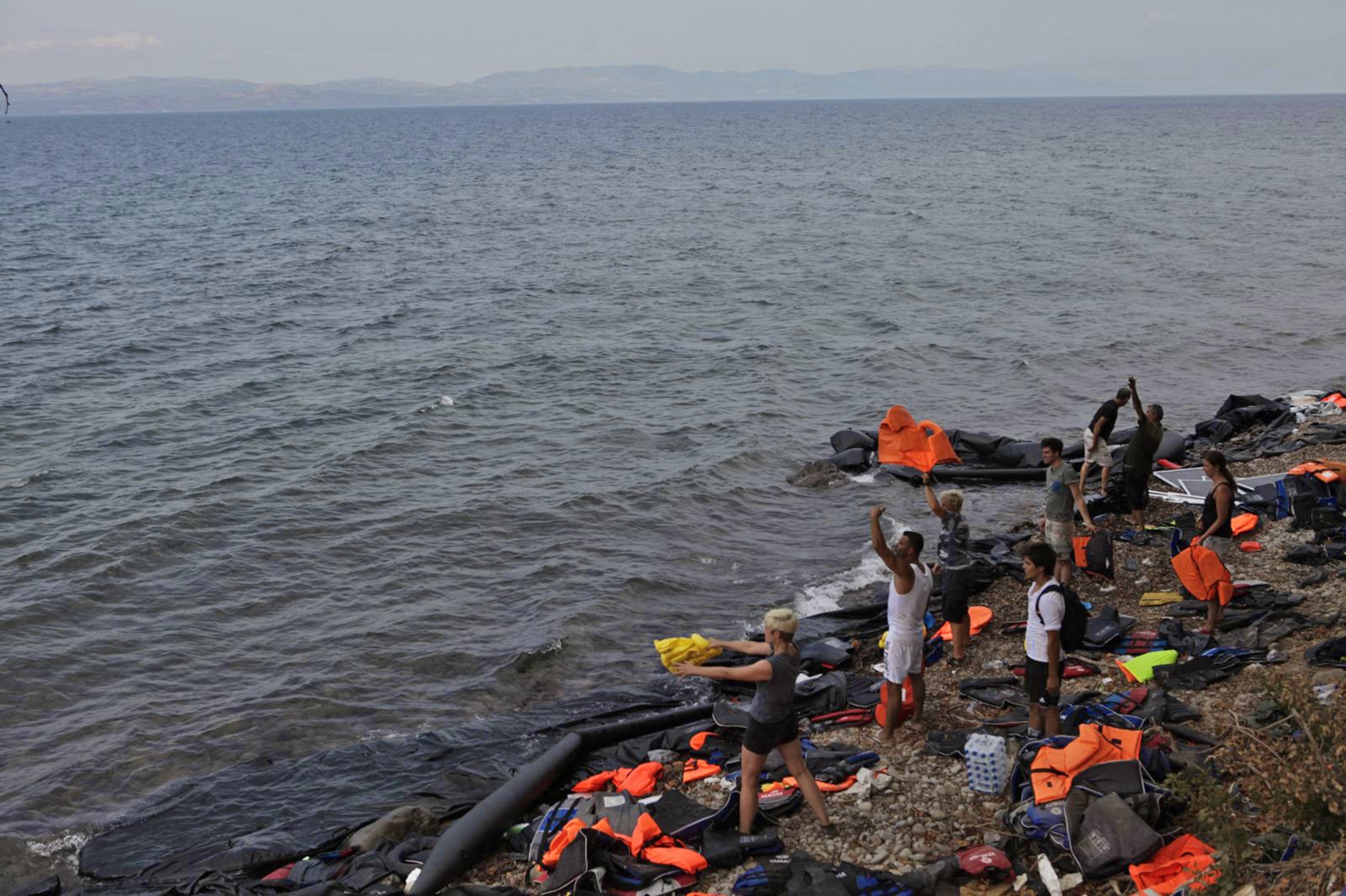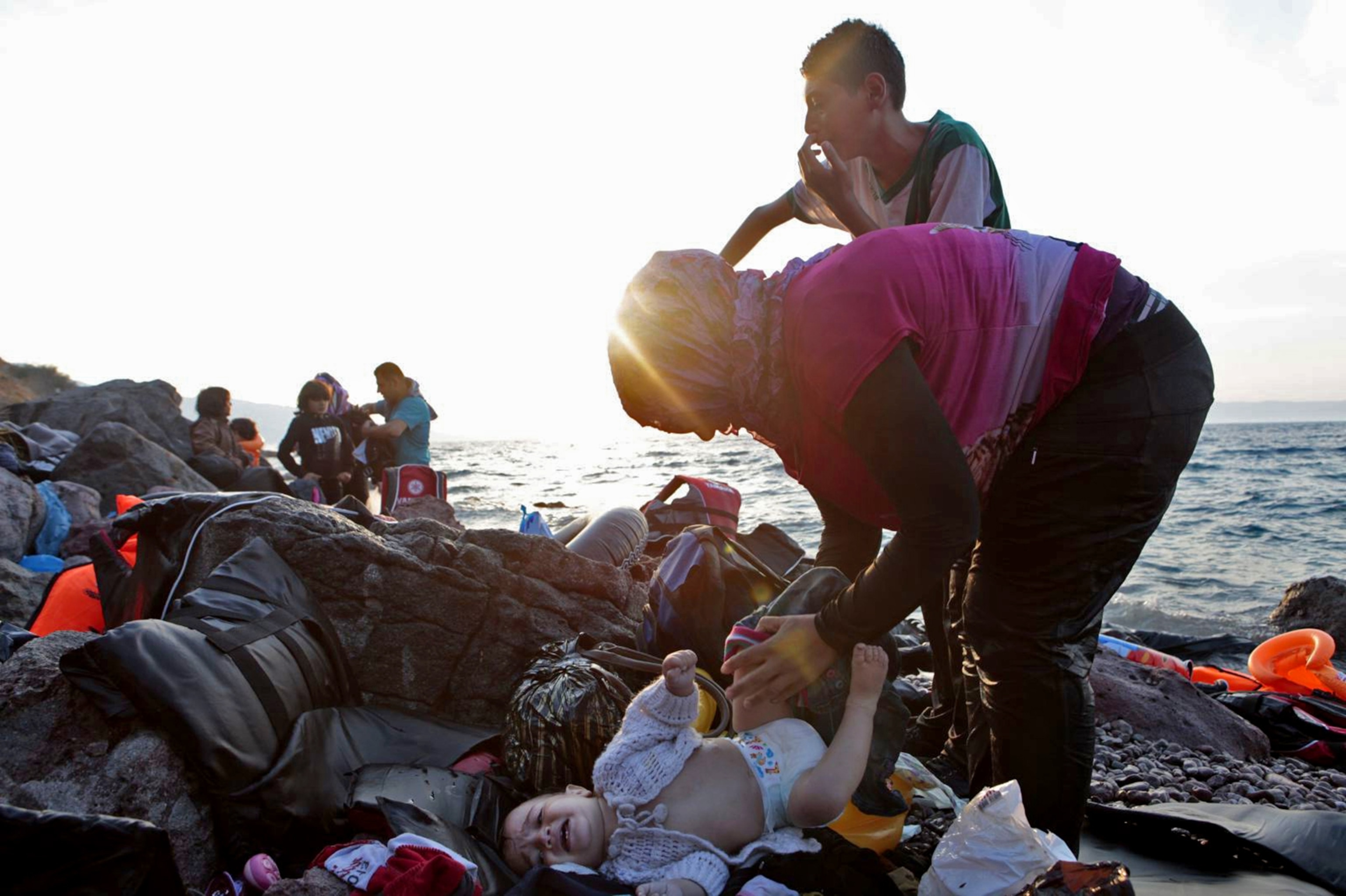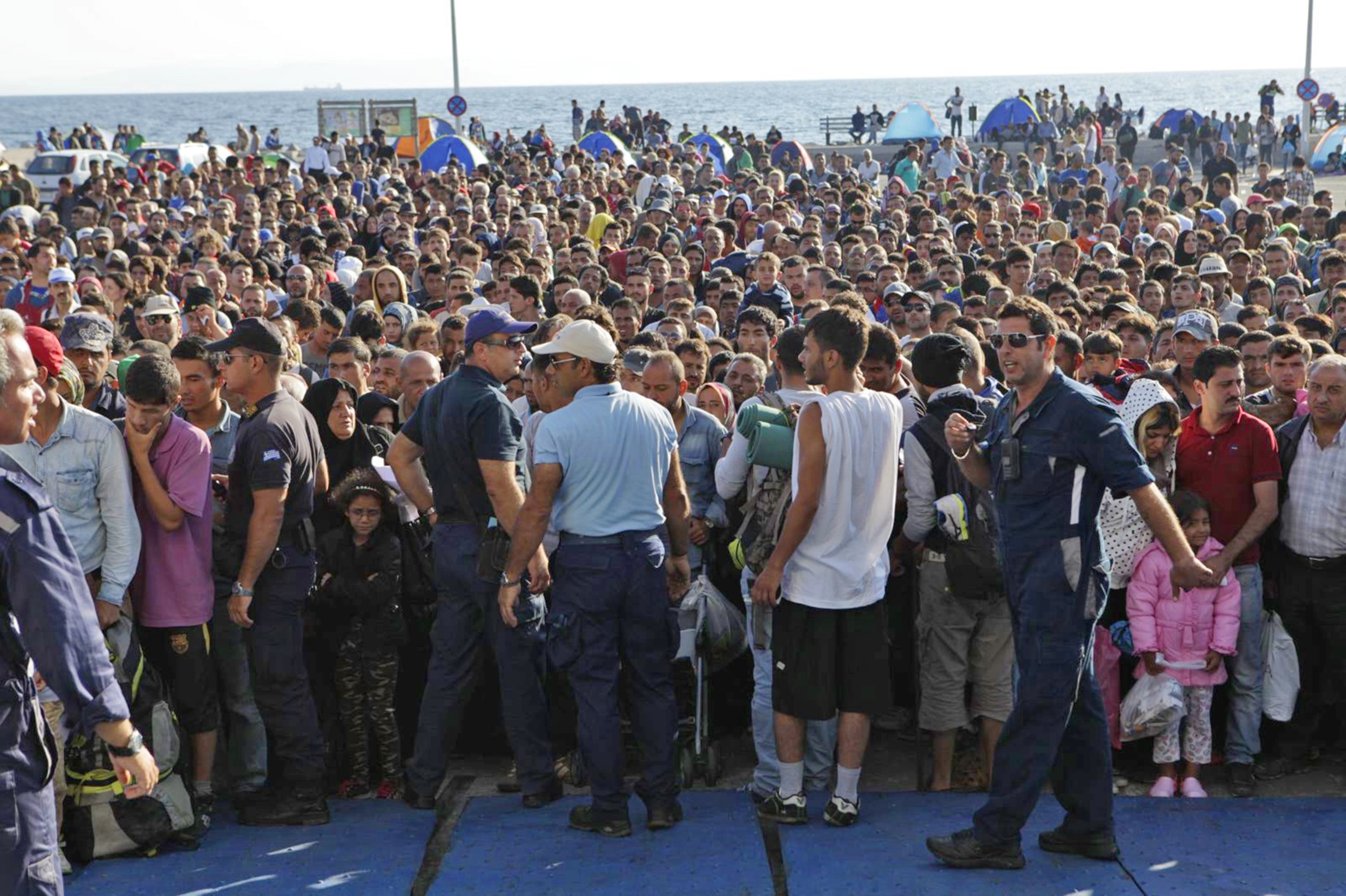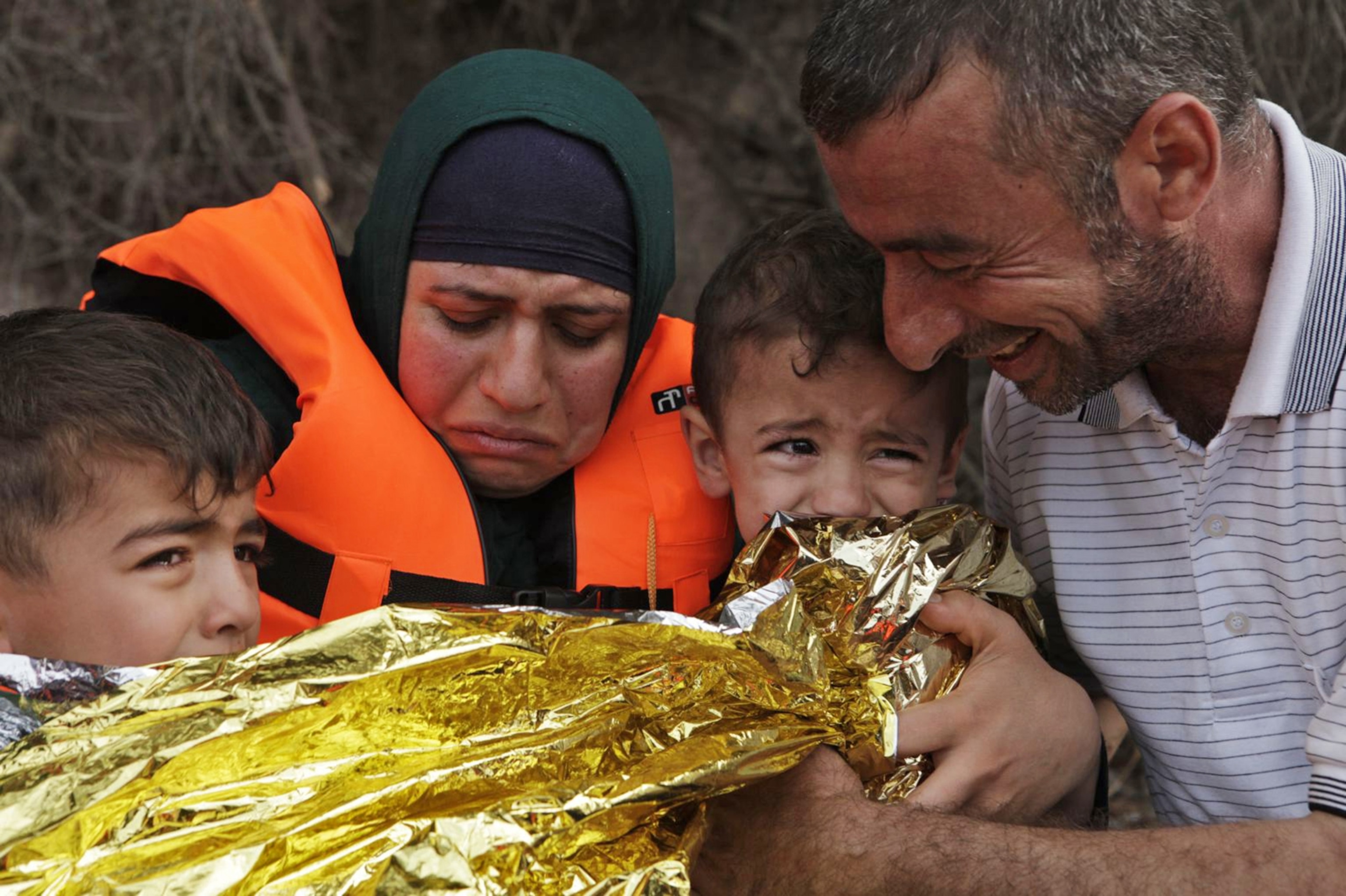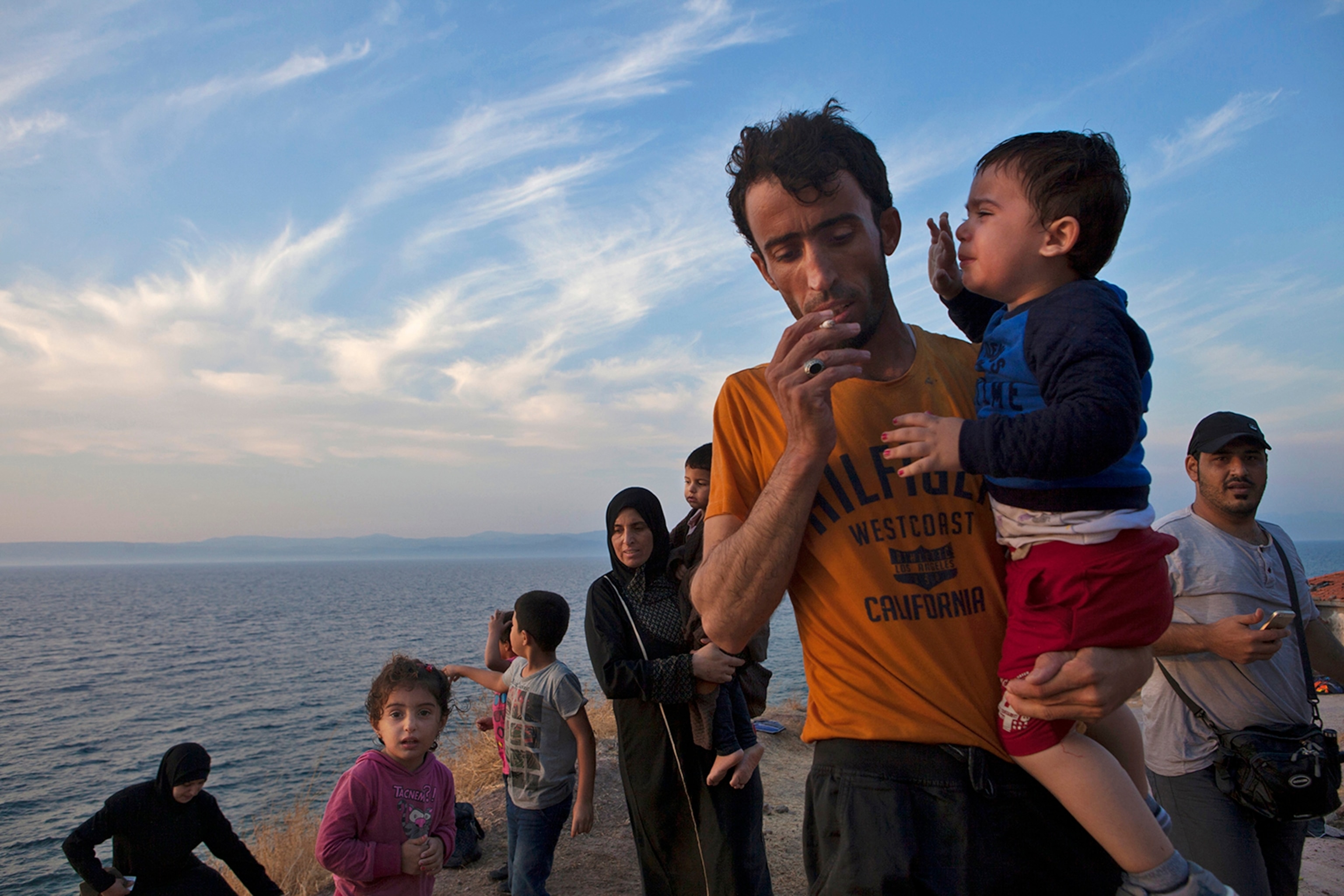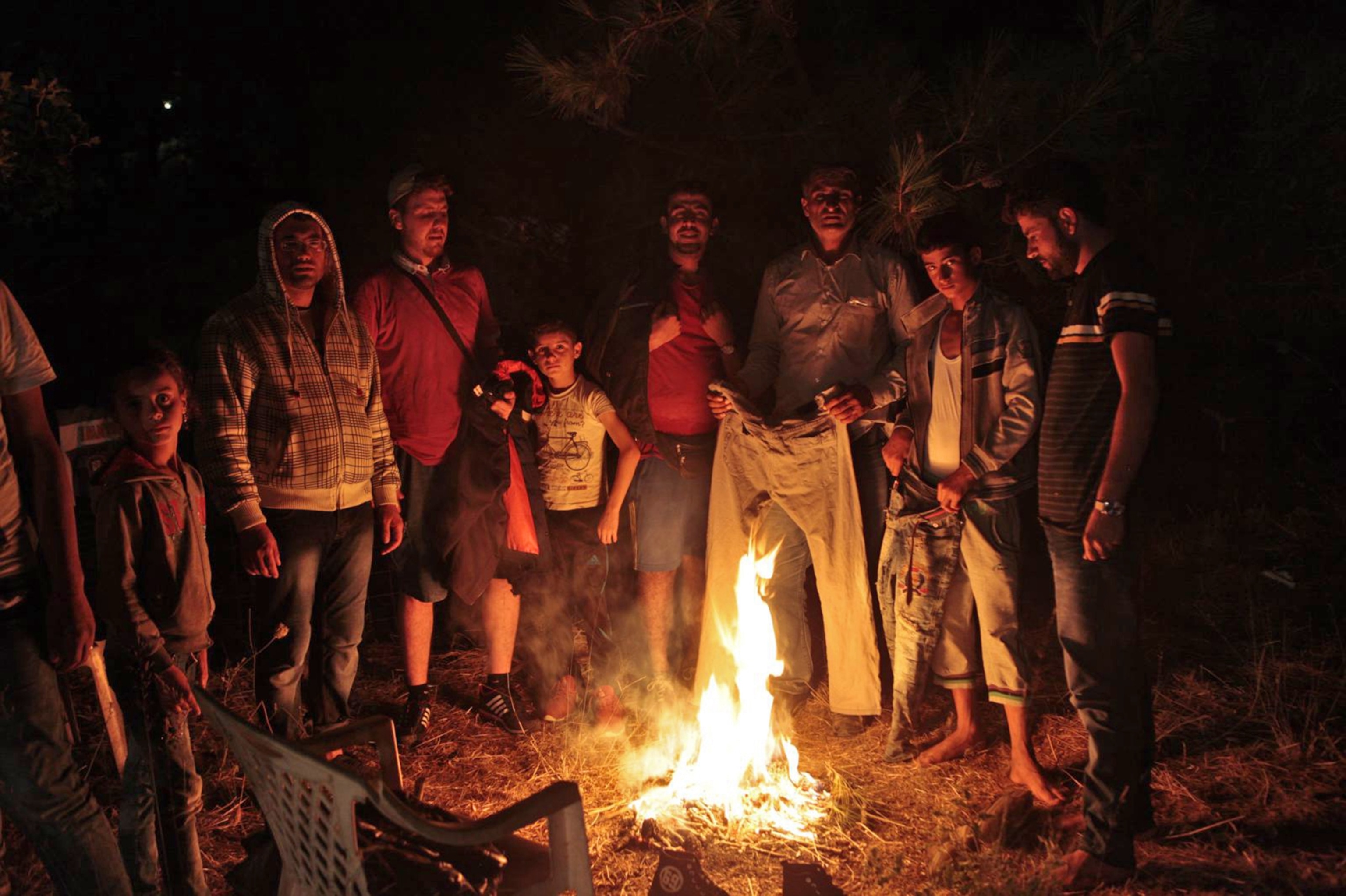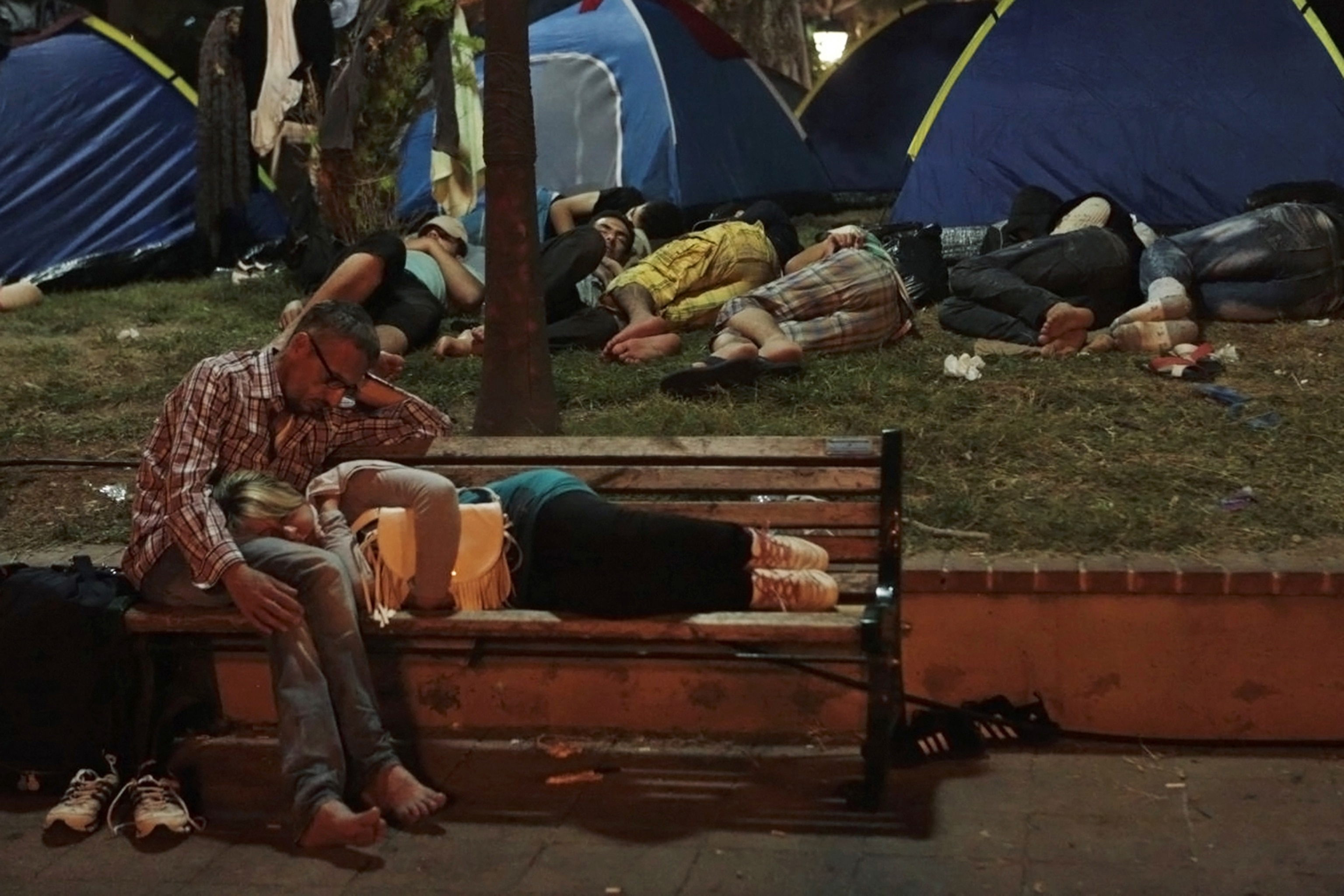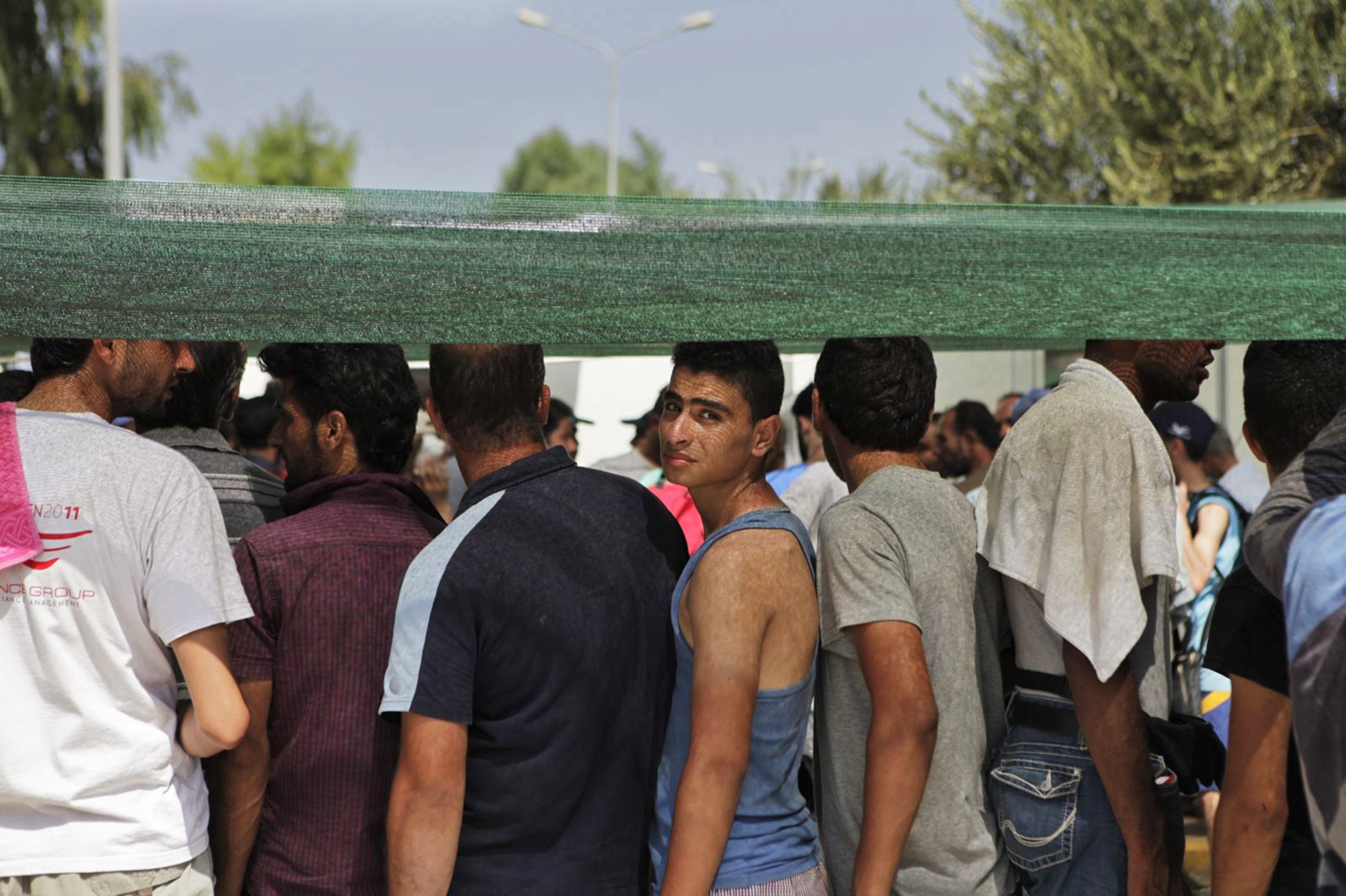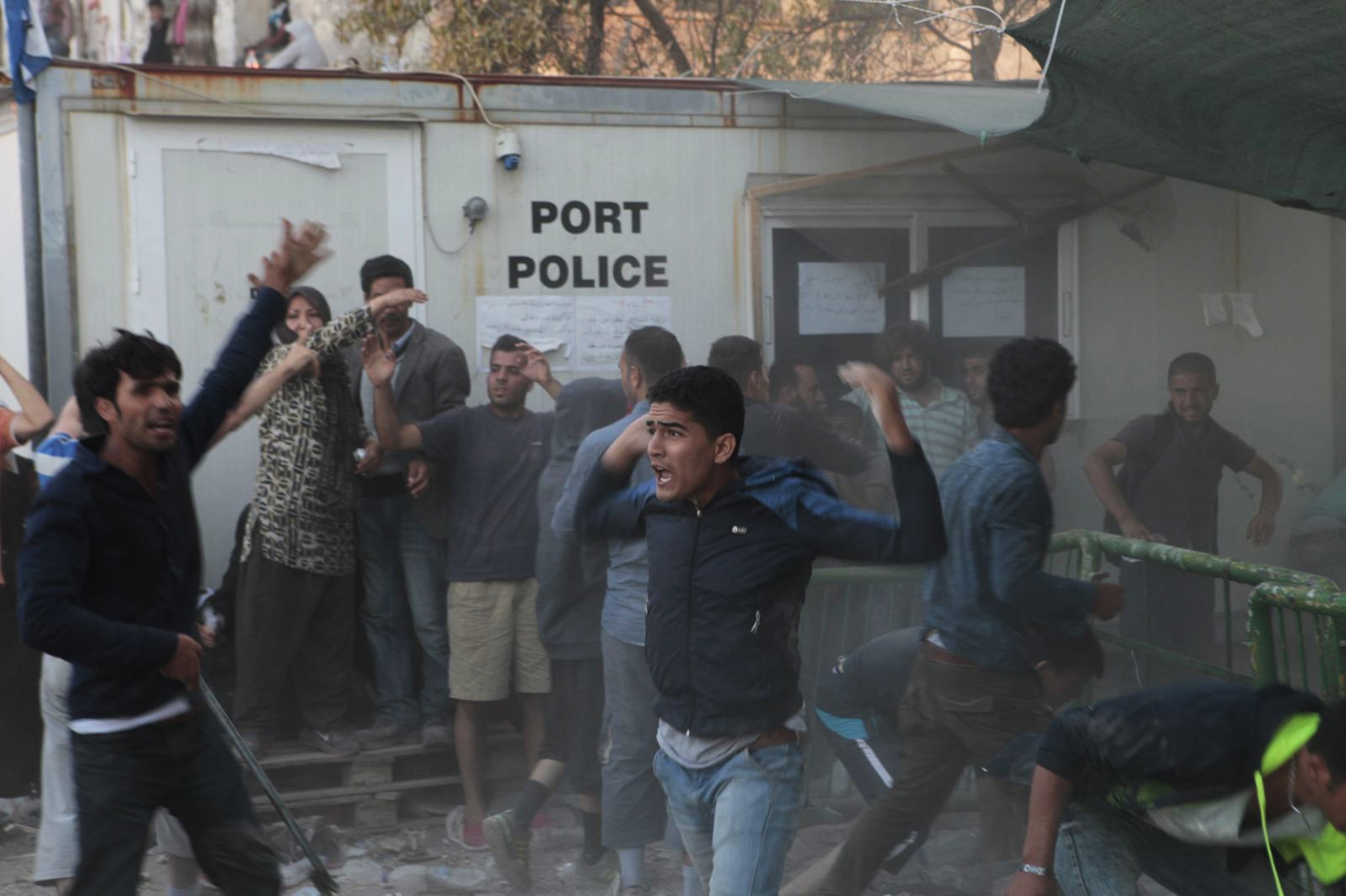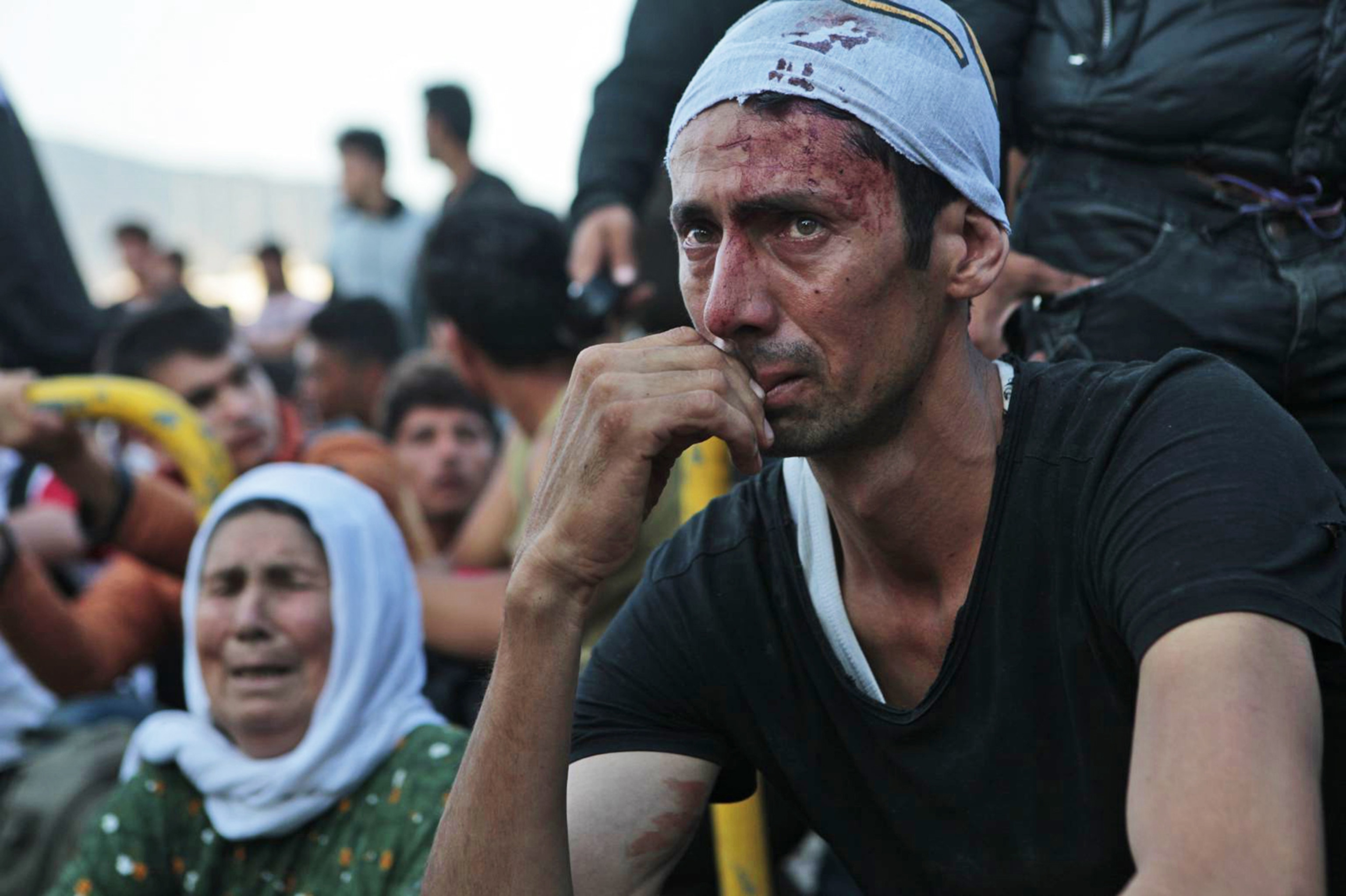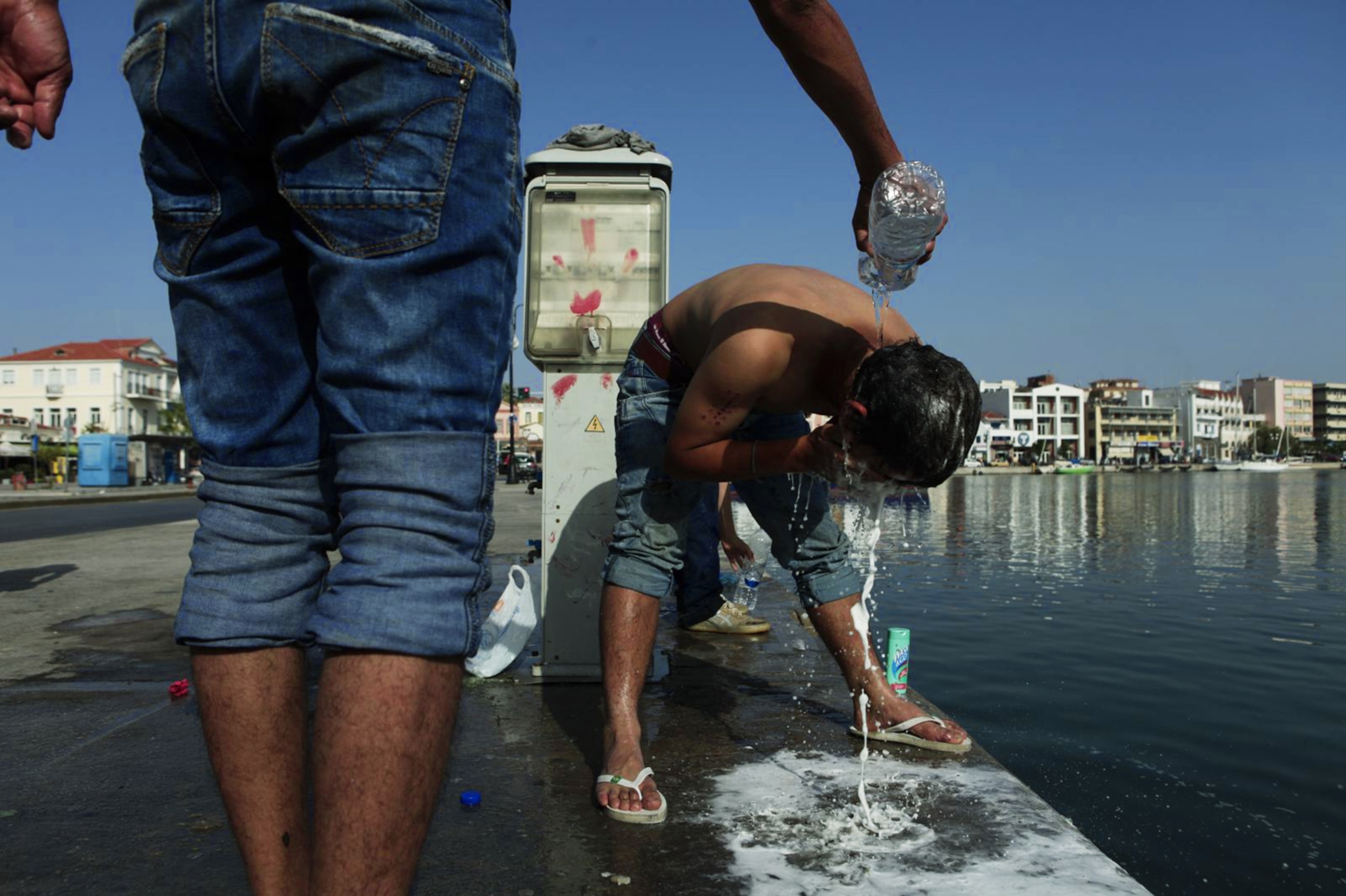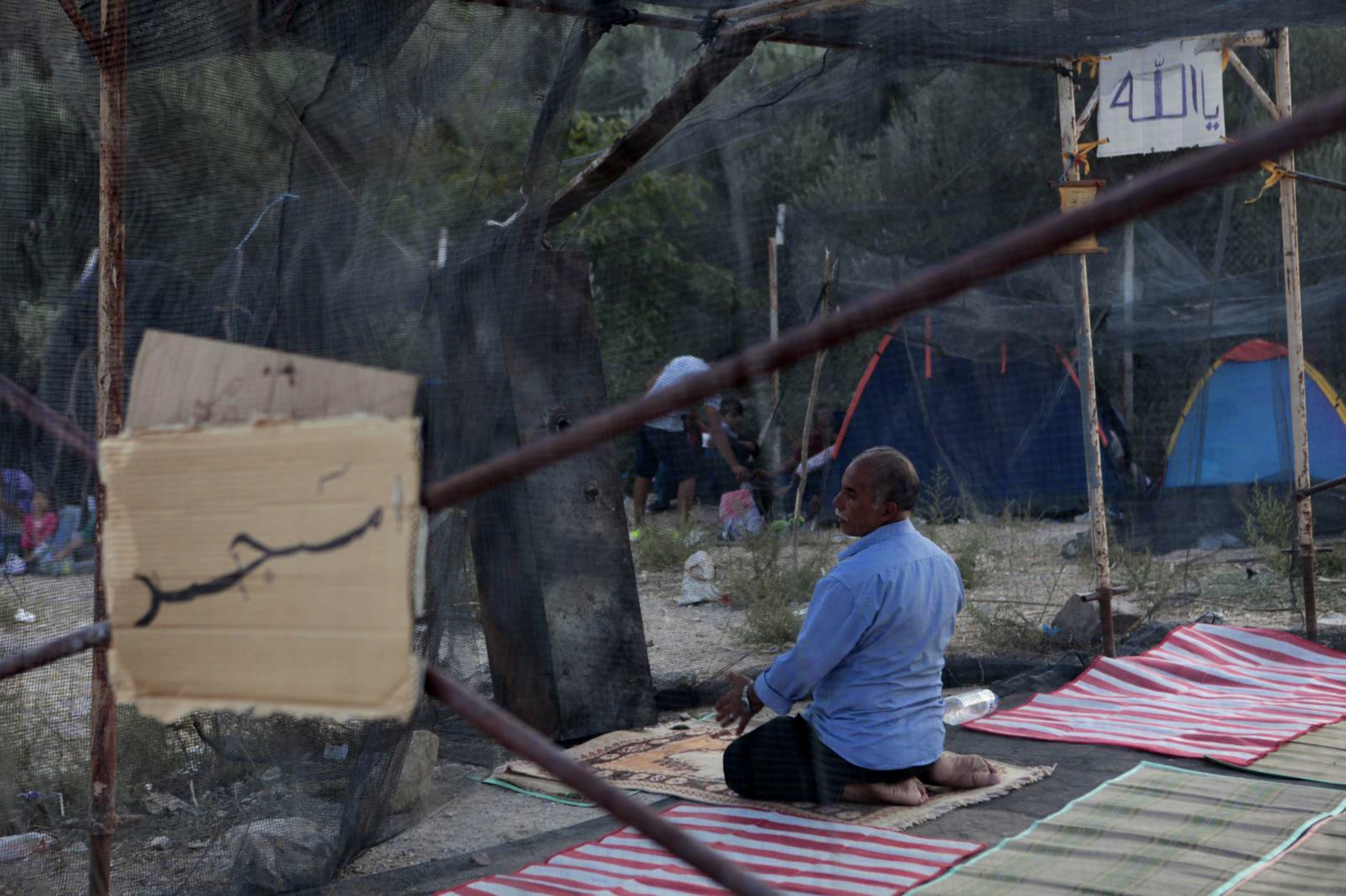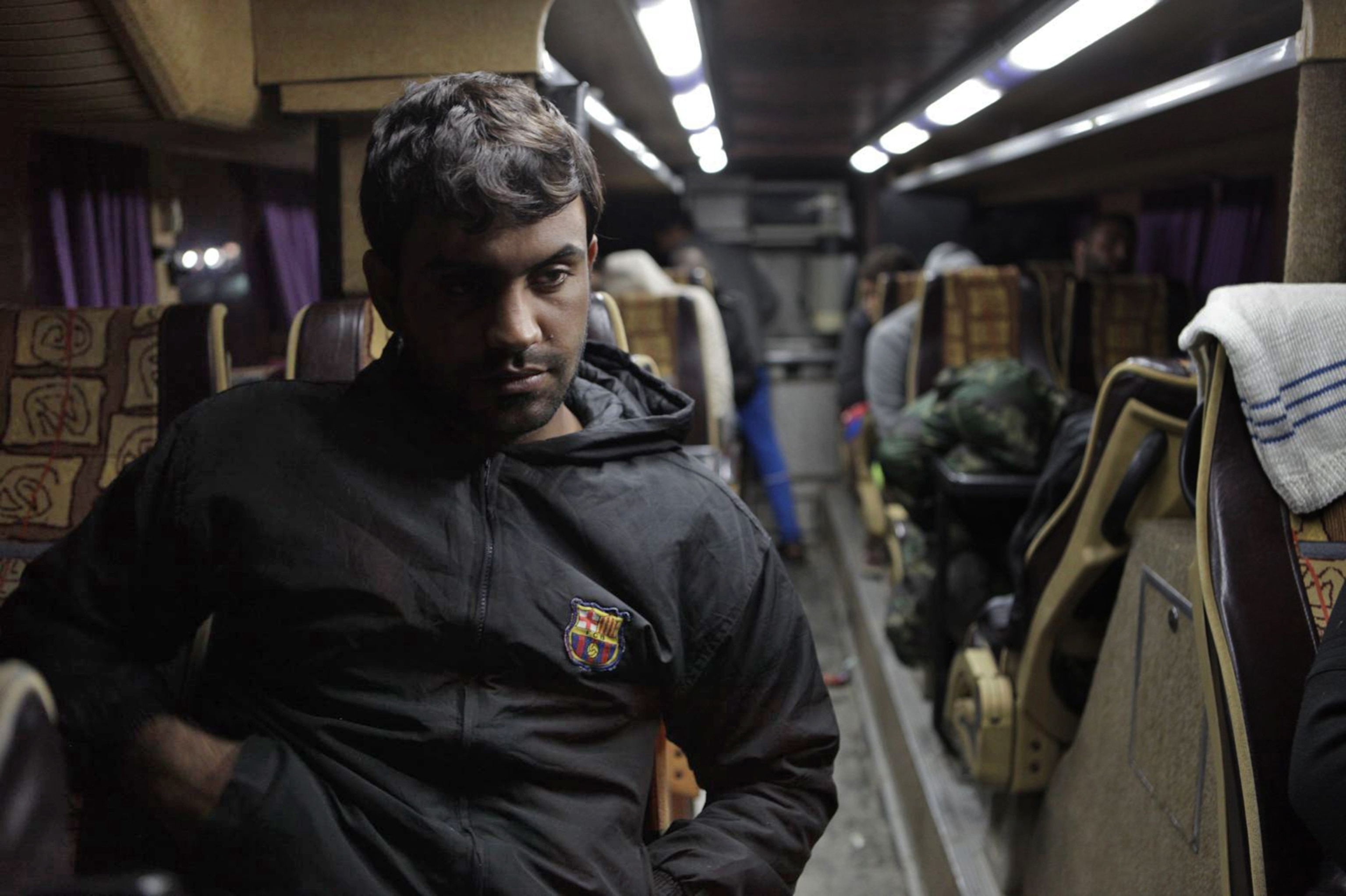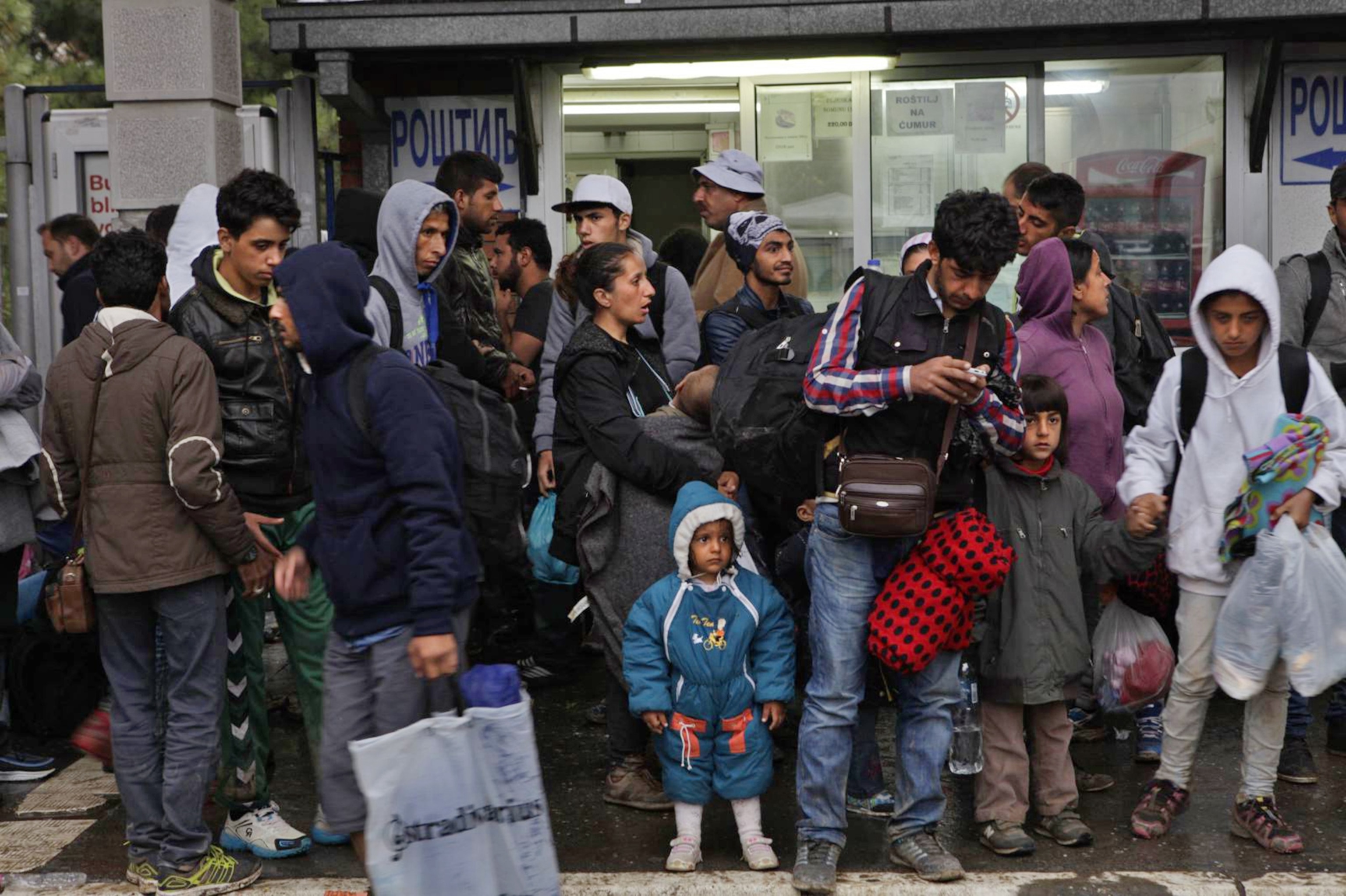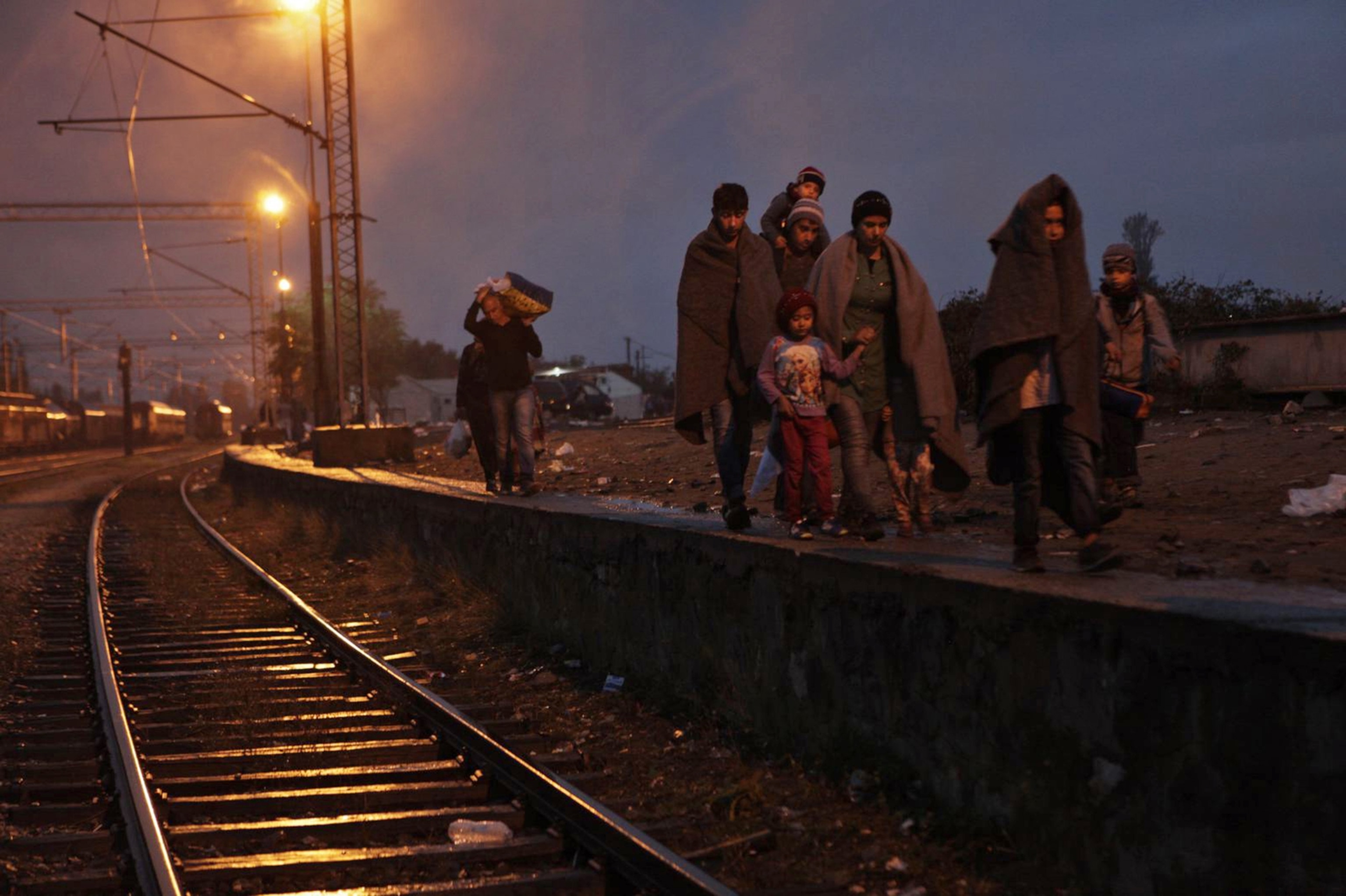
Photographer Goes Inside Refugees’ Desperate Journey
Harry Chun captures the tension and fear of those displaced from Syria and Iraq who are on a perilous path to Germany.
This month, photographer Harry Chun traveled to Istanbul, where he joined a group of Syrian and Iraqi refugees on their quest to reach Germany. Chun lives in the Hague, Netherlands, and has worked on stories from South Korea, Bolivia and Pakistan. He responded to questions from National Geographic by email, and his notes from his photographic journey make up an emotional collection of impressions and images from the refugees’ exhausting and harried journey.
You’ve joined the hundreds of thousands fleeing the Middle East and Africa for Europe, but you’re not alone, right?
I started the journey from Istanbul with a couple from Damascus who arranged my trip with the smugglers to reach Germany, where they will apply for asylum. There were more people who joined and got separated during the trip but we had two more Iraqis who have been with us since the boat ride. So five of us for our group.
During your trip were there any particular moments of grace and kindness? Of cruelty?
I certainly was in a unique gray zone where I could be either a refugee or a photojournalist. There were times that the rest of my group looked much more civilized than me as when they occasionally could wash and change their clothes, and they would joke about it. There were enough Hazara people from Afghanistan who didn’t look that much different than me, so without a camera I was equally treated as a refugee by locals. I can tell you it really hurts your feelings to face some inhumane or hostile moments by locals. But there were certainly as many locals who really care and feel for the refugees.
How has the journey been for children you've been seeing along the route?
Most kids are probably not fully informed about the distance they may have to travel or walk, but it’s probably better that way.
I saw a few parents almost crying out and begging their kids to continue as there wasn’t anything else they could do for them. Or some parents would just lift little ones on to their shoulders without saying a word and quietly kept walking.
When the children were uplifted and acting as if they were in some sort of adventure, everyone around became more energetic and got pumped up. Their laughter was infectious and the most effective tool to move on. On the other hand, when you see struggling children, it just feels heavy.
So many tender moments. Watching a very simple act of parents kissing their infants or children along the way made me quite emotional.
How are the refugees reacting to upsetting images of the crisis and how is that affecting their choices?
You would be surprised how well the refugees are connected to the outer world through social media. I saw people converting a broken cable out of street light into a charging station.
Word get out very quickly and, of course, for that iconic picture, they knew it could have happened to them so it wasn’t someone else’s story. However, it almost feels luxurious to be sentimental when everyone had to fully focus on going forward. And I believe and witnessed that, as much as how that picture was frightening, it wouldn’t make the refugees stop.
For those who shared their information and exchanged social media accounts, the network became a great resource as they all share segments of their own journey and updated information about how to proceed if the road is blocked or how much fees the smugglers or locals expect. I did the same for the ones following behind me or still in Turkey. It sometimes makes me feel more as one of them than a journalist.
What are some of the professions and countries of origin of the people you’re meeting?
I think asking what these people did before becoming refugees can be a very crucial fact for us to understand them or relate to them. We only know their lives after the crisis and barely pay attention to who they were before. Most of them were not born as refugees. There were as many professions as we see in our daily life: the rich and the poor, intellectuals, farmers, professors and doctors as well as engineers, mechanics, businessmen and journalists.
What moment has shocked you most?
Seeing that many people traveling and walking in one direction, and how determined they were to continue no matter what comes in their way.
What moment has touched you most?
It’s a combination of many little moments: Seeing young men carrying an old woman after her old husband struggled to carry her himself. Or the time I saw refugees jump into the cold sea water in an attempt to swim and push their raft, or refugees sharing things with me when they don’t have enough and locals giving us a box of cupcakes.
There was this father traveling with his two daughters, eight and twelve, and I could sense he really tried to keep up with us. I think it was because he was a bit intimidated by the journey and probably wanted to have a sense of protection by belonging to a group like ours. I thought it was really sweet. Unfortunately, that unity didn't last long and I haven't seen his family since but hope he also found his way to wherever he wanted to reach to.
What are they hoping for, and what do you wish, in particular, for any of the refugees you have come to know better?
Witnessing what they went through just made me feel more responsible to get the story out in a right manner. I strongly believe if those who want or agree to close the borders against the refugees see what the refugees go through on the road, they wouldn’t stand where they are now. It is hard not to be compassionate.
Here’s an excerpt from one of your emails; it seems like every step of the journey has its uncertainties:
Friday, September 11th:
Tomorrow is kind of a big day for us.
We will at some point move to near the border and after a long wait we will try to penetrate the fence set up by Hungarians when we feel it is a right moment. Likely some time after sunset.
If things go well, people ahead of us told me that there are normally taxis waiting for us on the other side. Not arranged, but by those who want to take advantage of the refugees by overcharging.
So I am hoping at some point on Sunday to arrive in Budapest after one tiring day and night.
Saturday, September 12th:
Everywhere we go is beyond its capacity.
My group decided to pay extra so they don't have to be in a long line two nights ago at the Serbian border to get their papers sorted out.
In the bus heading toward Hungarian border. Will make a move after sunset. Heard taxi drivers on the other side charging up to €200 a person for a ride to Budapest.
